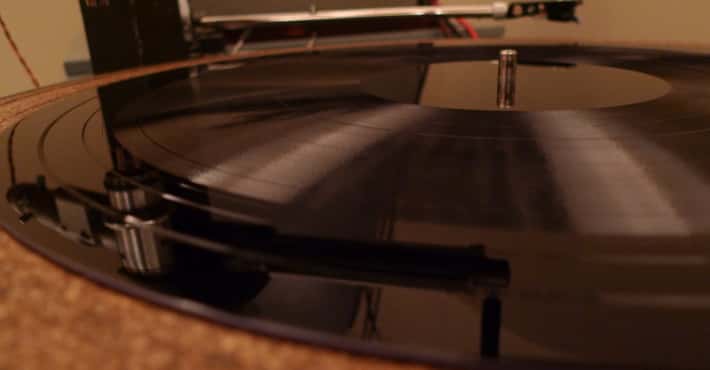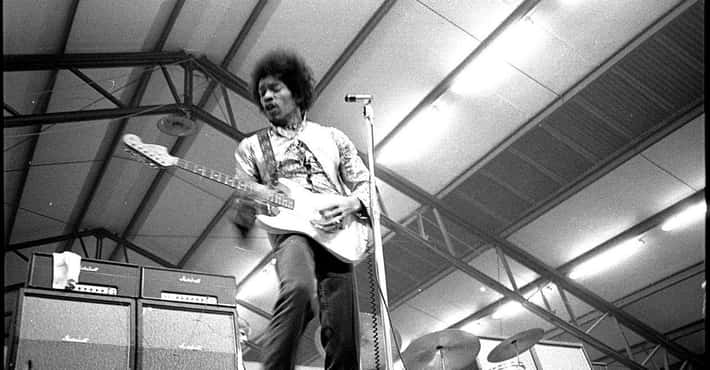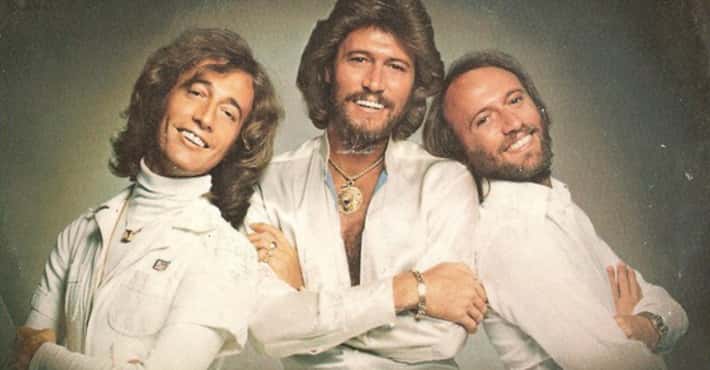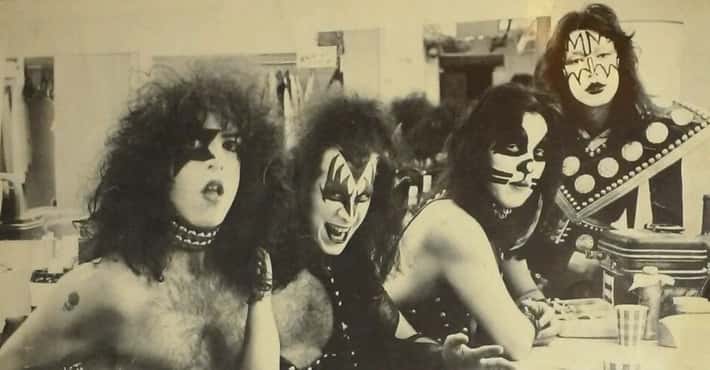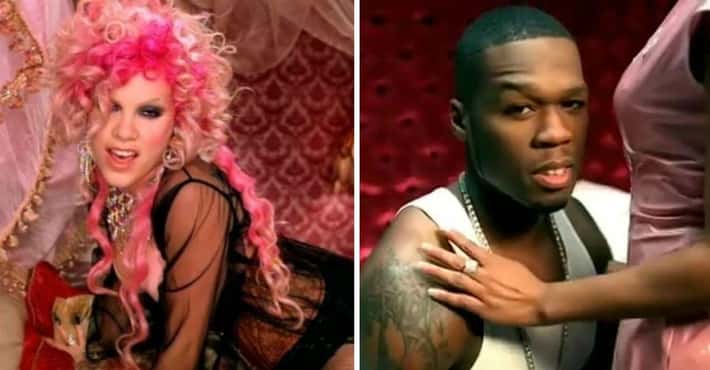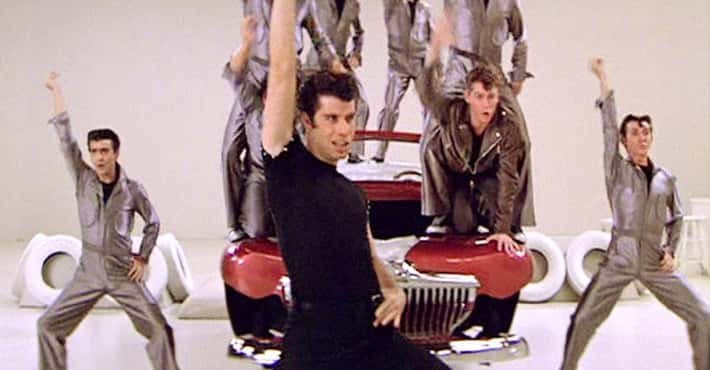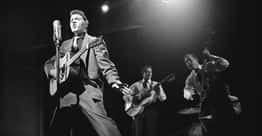All The Cultural References In The Song ‘American Pie,' Explained
'Bye, Bye Miss American Pie'
Some fans believe the "American Pie" in the famous first line of McLean's chorus refers to the name of the plane Buddy Holly perished on, but according to the federal Civil Aeronautics Board incident report about the aircraft's demise, the plane didn't have a name.
Jim Fann, creator of the Understanding American Pie website, argues the line has a potential two-fold meaning: a nod to the phrase "as American as apple pie" and an allusion to the Miss America beauty queen. The phrase "evokes a simpler time in American life when these icons held more meaning," Fann said.
‘Drove My Chevy To The Levee But The Levee Was Dry’
McLean imbues his all-American song with all-American iconography, like the Chevy automobile or truck. The dried levee (which rhymes with Chevy) adds a sense of barrenness to the current landscape in the song.
Also, an advertisement for Chevrolet in 1953 featured a jingle sung by Dinah Shore that includes a reference to a levee.
‘Singin' This'll Be The Day'
This line likely refers to Buddy Holly's song "That'll Be the Day."
Holly, along with singers the Big Bopper and Ritchie Valens, and pilot Roger Peterson, perished in a plane incident February 3, 1959. Their small aircraft went down on a snowy late night after a concert in Clear Lake, IA.
'A Long, Long Time Ago'
McLean released the song in 1971, but "American Pie" focuses on the 1950s, thus the exposition.
‘But February Made Me Shiver’
This is the first reference in "American Pie" (before the chorus) to Buddy Holly's demise on February 3, 1959. He hopped on a plane after playing a show in Iowa, and never made it to his next stop: Minnesota. Instead, the plane's remains were found in an Iowa cornfield, where all the passengers, including the pilot, perished.
It's believed the plane flew into a blizzard and the inexperienced pilot lost control.
‘With Every Paper I'd Deliver / Bad News On The Doorstep / I Couldn't Take One More Step’
McLean apparently worked as a newspaper delivery boy. And on February 3, 1959, the "bad news" was Buddy Holly's demise, on the cover of every paper (the afternoon version) that McLean distributed.
‘When I Read About His Widowed Bride’
Buddy Holly was married to his young wife, Maria Elena Santiago-Holly, for only six months when he perished.
His widowed, pregnant new bride was so traumatized by the news of his demise that she had a miscarriage.
‘The Day The Music Died’
Buddy Holly was not the only musician who perished in the plane incident. He was on a 24-day, 24-city tour with the Big Bopper and Ritchie Valens. The Big Bopper was known for his song "Chantilly Lace," and Valens for "La Bamba."
The loss of all three rock musicians in the same incident was seen as a tragedy, and in McLean's mind, marked the end of a musical era that would never be reclaimed.
‘Did You Write The Book Of Love?’
"The Book of Love" is a famous doo-wop song by The Monotones, a group from Newark, NJ. The song was released in 1958, topping pop and R&B charts. It must have left an impression on young McLean. As the lyrics to the song go:
I wonder, wonder who, mmbadoo-ooh, who
Who wrote the book of loveThe track actually made it to Woodstock 1969, where it was covered by Sha Na Na.
‘If The Bible Tells You So?’
"The Bible Tells Me So" was a gospel pop adaptation of the Sunday school song "Jesus Loves Me" written by Dale Evans in 1955 and recorded by a handful of singers the same year.
Versions from Nick Noble and Don Cornell were especially popular, soaring high on Billboard charts.
‘You Both Kicked Off Your Shoes’
This is likely a reference to sock hops, beloved teenage dance parties in the '40s and '50s that involved playing popular music in gymnasiums or community halls. Sock hops coincided with the rise of rock 'n' roll as the '50s progressed.
Participants were told to take their shoes off to protect the varnish on dance floors.
‘With A Pink Carnation And A Pickup Truck’
In 1957, Marty Robbins released the heartbreak song "A White Sport Coat (And a Pink Carnation)" about a young man "all dressed up for the dance" and "all alone in romance."
‘And Moss Grows Fat On A Rolling Stone’
A year after Bob Dylan released "Like a Rolling Stone" in 1965, he was involved in a strange motorcycle incident that made him lie low for a year or two at the height of his career. He'd just transformed himself from a folk singer to an electric guitar-playing rock musician, which caused a lot of controversy within the American music scene.
Some fans believe McLean's intention with this line in "American Pie" is to highlight the evolution of music between the '50s and early '70s while also pushing the action of the song into the '60s.
‘When The Jester Sang For The King And Queen’
According to one fan theory, Bob Dylan is the jester, Pete Seeger is the king, and Joan Baez is the queen. All three were influential and politically motivated folk singers in early '60s, and it's not a stretch to suggest their music influenced McLean's own folksy sound. Dylan, Seeger, and Baez were all on stage together at the Newport Folk Festival in 1963, where they sang Dylan's "Blowin' in the Wind" in unison.
Another theory is that the king and queen refer to President John F. Kennedy and first lady Jackie Kennedy.
‘In A Coat He Borrowed From James Dean’
This line could be another reference to Bob Dylan.
On the cover of his 1963 album The Freewheelin' Bob Dylan, Dylan wears a red windbreaker similar to the one worn by James Dean in the film Rebel Without a Cause.
‘And While The King Was Looking Down’
If the king is Pete Seeger, the godfather of folk, this could be a reference to him looking down upon the way Bob Dylan experimented with music in the 1960s.
‘The Jester Stole His Thorny Crown’
Bob Dylan the jester became the king, taking the crown when he won hearts with his brand of folksy rock 'n' roll.
Who did he take the crown from? Some people believe it's Elvis, the "King of Rock 'n' Roll." Others stick with Pete Seeger.
‘The Courtroom Was Adjourned / No Verdict Was Returned’
Returning to the JFK theory, after he was slain in 1963 , the man accused of the slaying, Lee Harvey Oswald, was himself slain.
Therefore, "no verdict was returned" because no trial actually occurred.
‘And While Lennon Read A Book On Marx’
While some fans think McLean is singing about Communist revolutionary Vladimir Lenin, the more popular theory is that he's singing about the Beatles becoming more political with their music as tensions soared in the '60s. The Beatles, adored by American youth, were deemed inappropriate by older generations who thought their music was too rowdy.
As their sound evolved, the Beatles released songs like "Revolution" in 1968, whose message is in line with the Communist philosophies of German writer Karl Marx, known for The Communist Manifesto.
’The Quartet Practiced In The Park’
The quartet is likely the Beatles: Paul McCartney, John Lennon, George Harrison, and Ringo Starr.
‘And We Sang Dirges In The Dark’
A dirge is a funereal song of mourning, and there were plenty of lives to mourn in the '60s: President John F. Kennedy, Martin Luther King Jr., and Robert F. Kennedy among them.
The line could also refer to the Vietnam conflict; many drafted service members sent overseas never made it back home.
‘Helter Skelter In A Summer Swelter’
"Helter Skelter" is a song the Beatles released in 1968, a year of political and social turmoil in the United States.
The next August, "in a summer swelter," followers of Charles Manson brutally slayed five people, including the actress Sharon Tate, who was eight months pregnant at the time.
‘The Birds Flew Off From A Fallout Shelter’
Some fans speculate this is an allusion to the '60s rock band The Byrds. A fallout shelter is a euphemism for a treatment center, which one of the band members checked into after being caught with illicit substances.
‘Eight Miles High And Falling Fast’
Eight Miles High is the title of a 1966 album by The Byrds, considered one of the first real trippy records.
The groundbreaking sound of the album was influenced by plenty of experimentation with illicit substances, particularly acid.
‘It Landed Foul On The Grass’
Grass. Herb. Dope. Pot. Doobie. All of these slang words refer to one thing, a certain illicit (and some consider foul-smelling) substance favored in the '60s counterculture on display in "American Pie": weed.
‘With The Jester On The Sidelines In A Cast’
Fans believe this is another homage to Bob Dylan's 1966 motorcycle incident.
‘While Sergeants Played A Marching Tune’
The Beatles released Sgt. Pepper's Lonely Hearts Club Band in 1967, and this is likely an allusion to that significant album.
With this release, the Beatles amped up their innovative approach to rock music, including sitars and sound collages.
' 'Cause The Players Tried To Take The Field / The Marching Band Refused To Yield’
Fans see this as a remark about the protest movement that seemed to peak in the late '60s and early '70s, from Chicago to Kent State.
Young people demonstrated en masse against prejudice, military conflicts, and economic injustice.
‘Oh, And There We Were, All In One Place’
McLean could be making a statement about the unifying power of the Woodstock 1969 festival in Bethel, NY, which brought together more than 400,000 people in one weekend.
Many of the most well-known rock musicians of the time performed, including Janis Joplin and Jimi Hendrix. The festival is viewed as the height of American hippie culture.
‘Jack Be Nimble, Jack Be Quick / Jack Flash Sat On A Candlestick’
This line could be a mash-up between the "Jack Be Nimble" nursery rhyme and the 1969 song "Jumpin' Jack Flash" by the Rolling Stones, released on their album Live'r Than You'll Ever Be.
Fans think this is an insult to the Stones for not coming up with a good comeback to the Beatles' album Sgt. Pepper's Lonely Hearts Club Band. According to their theory, "Jack" is Mick Jagger.





